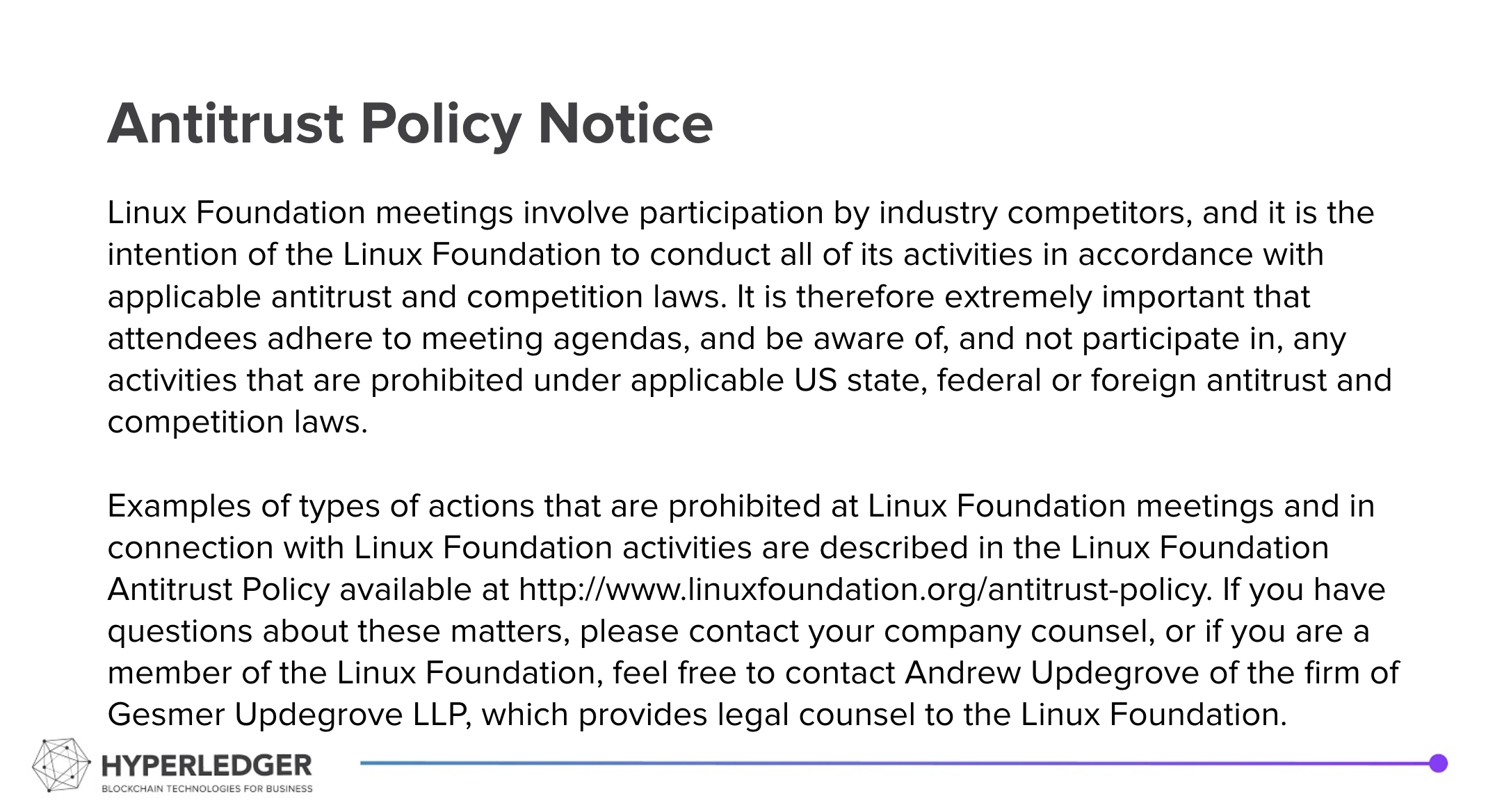Summary
- Discovery of networks
- Given a DID, how to find it's network via gossiped ledger data
- Versioning
Recording from the call: 20201124 Indy DID Method Specification Call Recording
Hyperledger is committed to creating a safe and welcoming community for all. For more information please visit the Hyperledger Code of Conduct. |
|---|
Welcome and Introductions
Announcements
- TBD
Attendees
- Stephen Curran
- Paul Bastian
- Alexander Jonsson (Laniakea Health) <alex@laniakeahealth.com>
Collaboration Channels
- Current hackmd document
- indy-did-method on RocketChat - https://chat.hyperledger.org/channel/indy-did-method
- indy-did-method repo
Previous Discussion:
- The specific will be specific that all DIDs MUST be self-certifying – e.g. derived from the initial public key used in the NYM
- We'll use ":" for subsidiary ledgers, and we'll include placeholder support for KERI, leading to 4 cases:
- Ledger with no subsidiary name, example:
did:indy:sovrin:12345 - KERI identifier on a ledger with no subsidiary name, example:
did:indy:sovrin:keri:12345 - Ledger with subsidiary name, example:
did:indy:sovrin:staging:keri:12345 - KERI identifier on a ledger with a subsidiary name, example:
did:indy:sovrin:staging:keri:12345
- Ledger with no subsidiary name, example:
- To find networks we will require at least the first and perhaps the second of these approaches, while the rest are suggested:
- Config files for one or more known networks
- A mechanism for a ledger operator to register discovery information for other ledgers (aka "human gossip")
- Decentralized registries based on verifiable credentials
- Other registry mechanisms, such as the DDNR proposal
Online Discussion (from RocketChat this week)
Discussion:
- Discussion led by Daniel Hardman about how to implement the gossiping mechanism via "networks" ledger DIDs -
- Daniel Hardman presentation
- DID Namespace DID: https://github.com/WebOfTrustInfo/rwot8-barcelona/blob/master/topics-and-advance-readings/did-namespace-records.md
- How to find config files in a centralized place?
- ToIP, DIF, OrgBook for networks
- Folder where the spec is – indy-did-method repo
- How to find previous versions of DIDs and what are the implementation ramifications of that?
- <did>?version-id=<txnid>
- Return the txnid as part of DID resolution so it can be included in URIs
- <did>?version-time=<timestamp>
- Indy does do timestamping - coarse:
- tracked as part of consensus to (a) within 5 minutes (b) batch time greater than the last one
- leader node picks, but vetted by other nodes, understanding that the leader node's time could drift.
- How to do time based querying?
- Probably not indexed
- Could do binary search querying of the txnids
- Code needs to be written to do this.
- Indy does do timestamping - coarse:
- <did>?version-id=<txnid>

